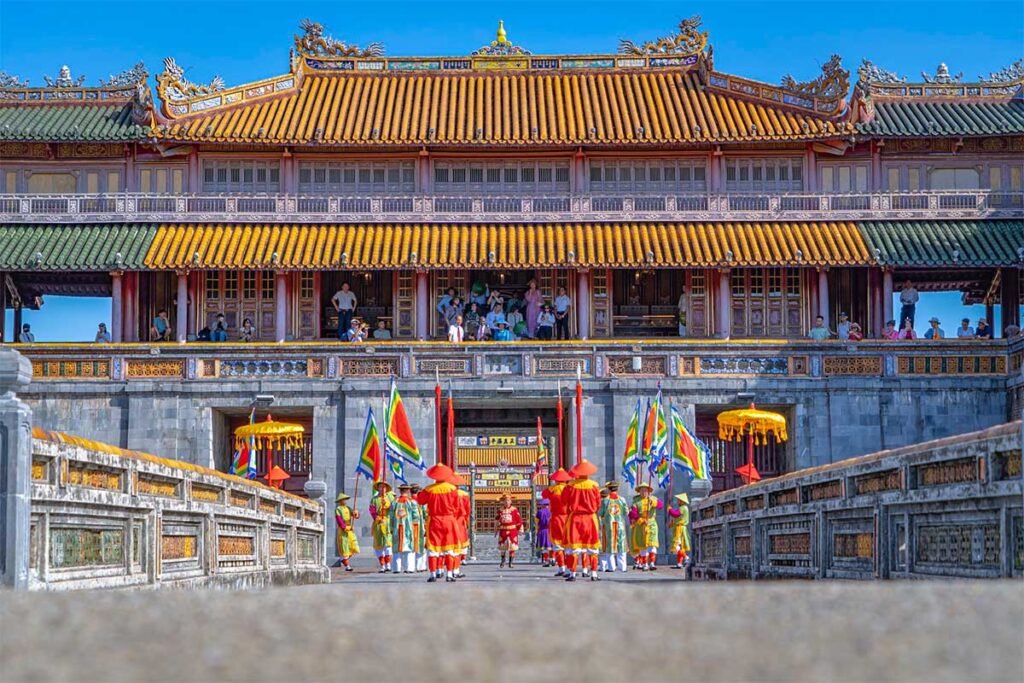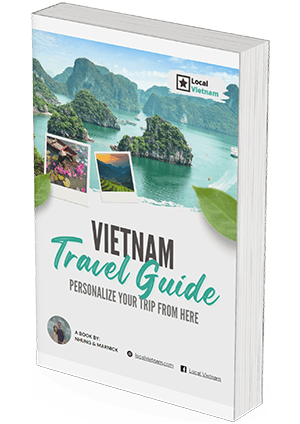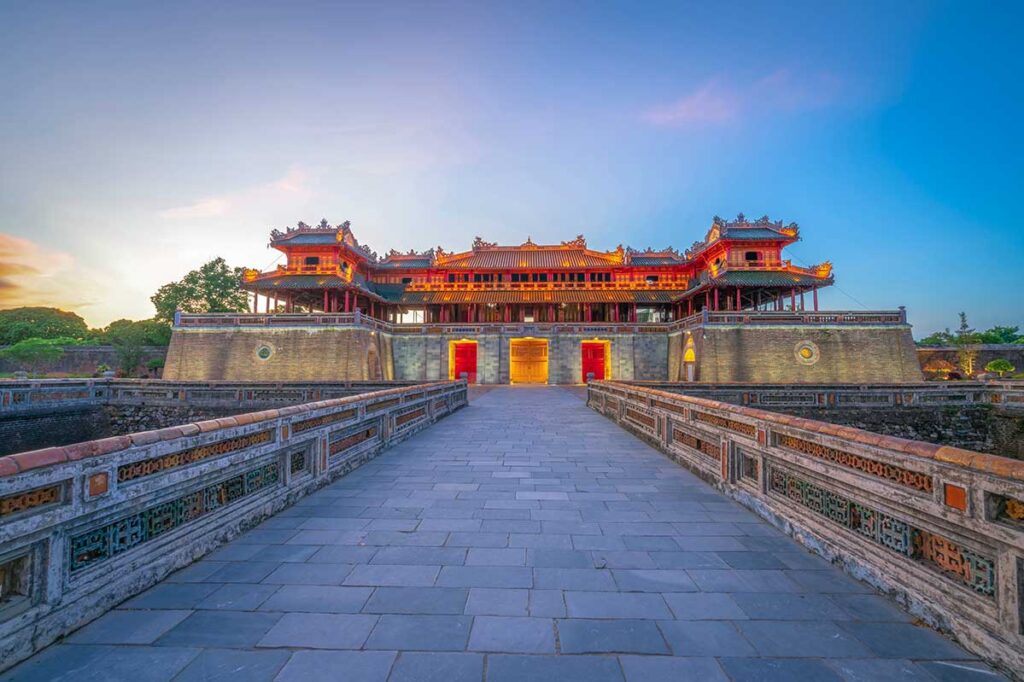What is the Hue Festival?
Hue Festival is a major cultural event organized by the local government every two years to celebrate Hue’s rich history, art, and traditions. When it began in 2000, it was a week-long event held in the summer.
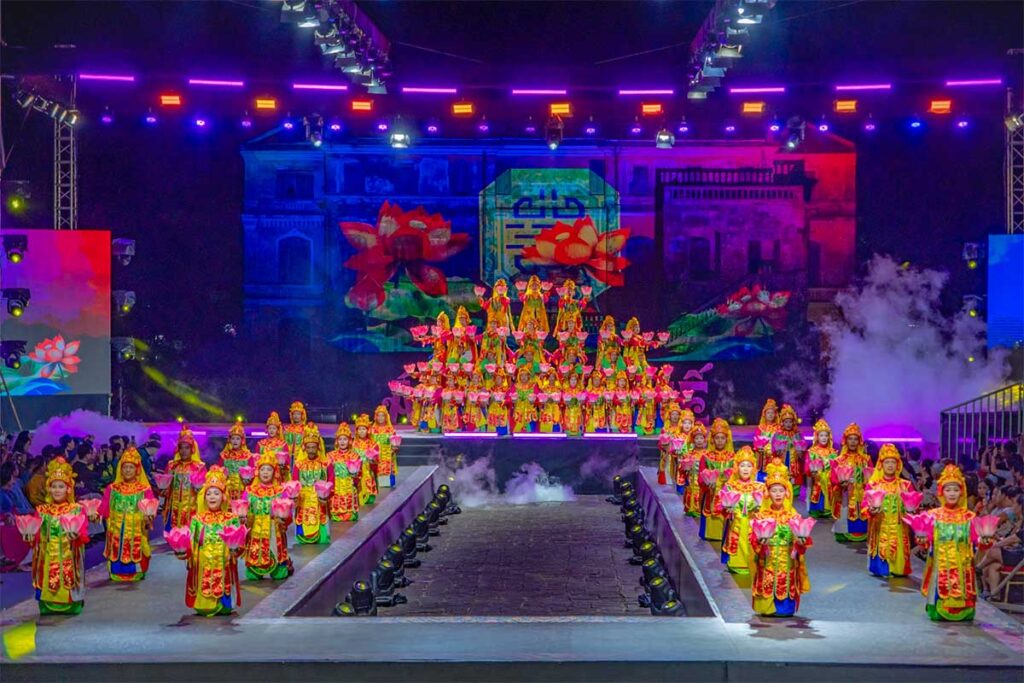
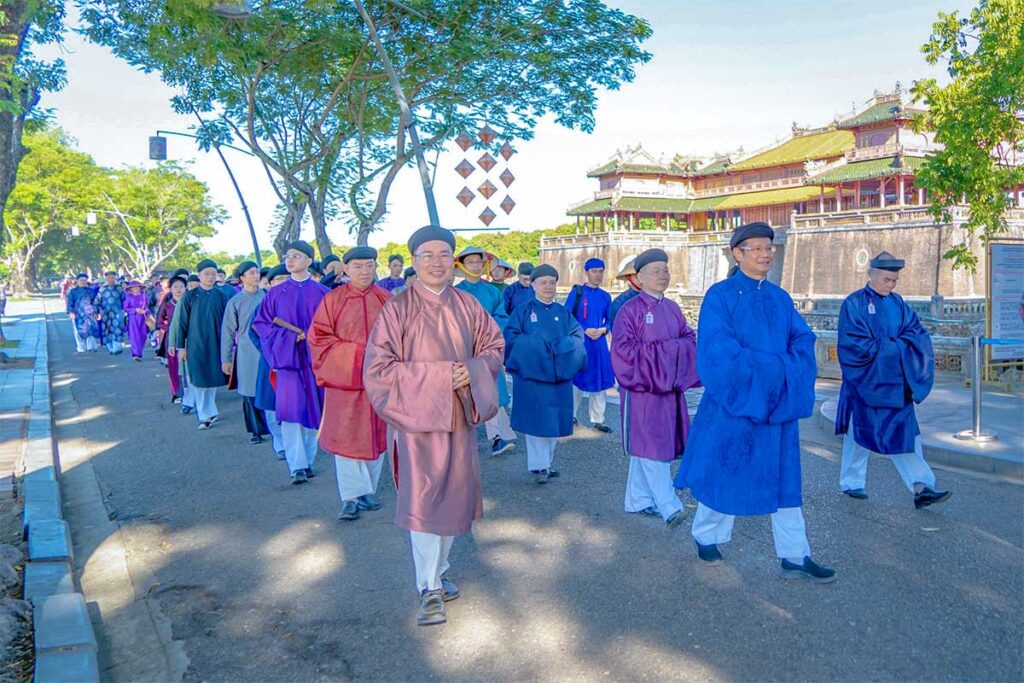
In recent years, it has expanded into a year-long program of rotating events across all four seasons—each featuring different themes and activities. Instead of one big week, the modern Hue Festival is made up of smaller events like food fairs, traditional ceremonies, concerts, art shows, and sports festivals—spread throughout the year.
Seasonal themes
The Hue Festival calendar is divided into four segments: Spring, Summer, Autumn, and Winter, with events spaced throughout the year.
Each season brings a different mood, often shaped by national holidays, local traditions, or historical anniversaries.
- Spring typically features more cultural and Tet-related events, including royal ceremonies and traditional village festivals like folk wrestling.
- Summer is often the most event-packed season, sometimes including the opening ceremony and major international performances.
- Autumn and Winter tend to have smaller-scale events—art exhibitions, wellness programs, culinary festivals, and religious celebrations.
Keep in mind that the type, timing, and scale of events can vary with each edition, so there’s no fixed schedule from year to year.
Hue Festival highlights
Hue Festival is not just a single event but a year-long cultural celebration spread across spring, summer, autumn, and winter. Each season brings its own mix of activities—some lasting just one evening, others stretching over several days. There’s no need to time your visit to a specific “festival week” to enjoy it, but if you happen to be in Hue during a busier period, the city feels even more alive. Below are the main types of experiences you can expect, regardless of the year you visit.
1. Music and Performing arts
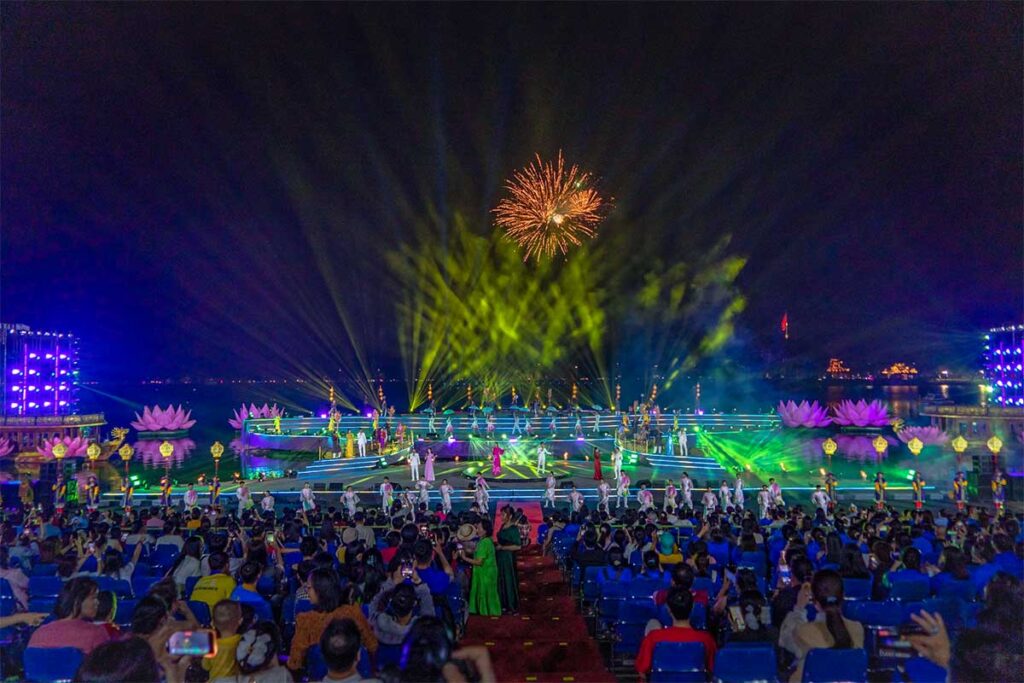
If you enjoy live performances, Hue Festival delivers on every scale. Some nights feature huge open-air concerts with thousands of seats, sophisticated lighting, and special effects, often blending traditional culture with modern staging. Others are smaller, more intimate shows in the courtyards of historic buildings.
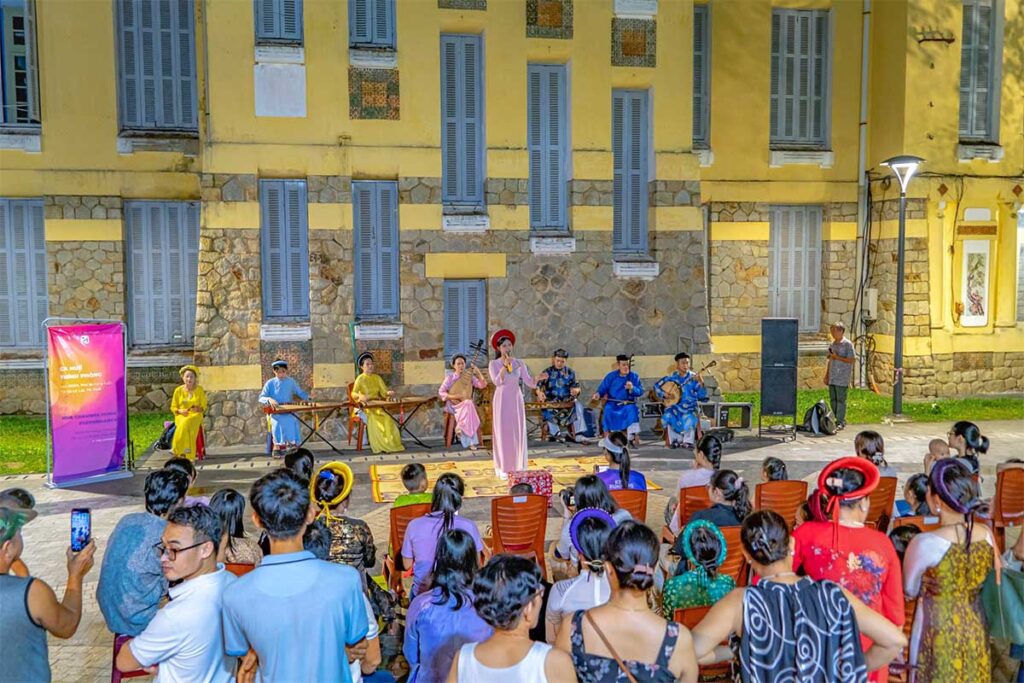
Expect to hear Nha nhac (Vietnamese royal court music) performed in its original setting, alongside folk songs from different regions, drum ensembles, and traditional dance. The program usually includes contemporary music too—pop, rock, hip-hop, and fusion acts from Vietnam and abroad. In between, you might stumble upon spontaneous street performances with traveling troupes, student groups, or artists from other countries adding their own flair to the streets of Hue.
2. Parades and Street Festivals
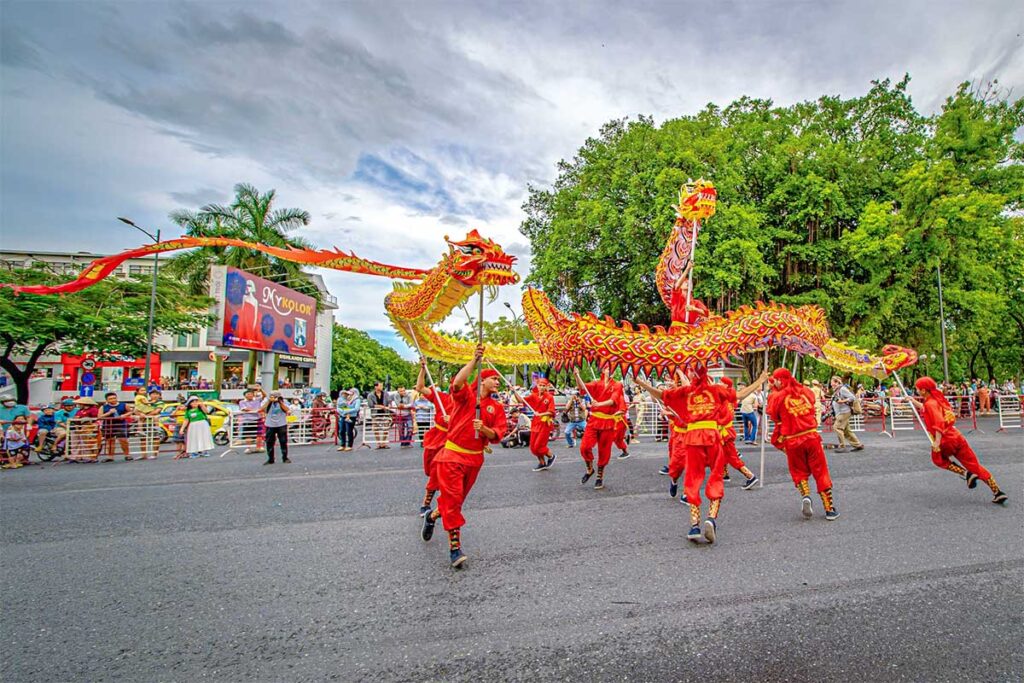
Hue Festival’s parades are among its most photogenic events. Daytime parades often include lion and dragon dances, costumed performers, and heritage floats representing different regions of Vietnam. At night, the atmosphere shifts—illuminated floats, glowing lanterns, and light installations turn the streets into moving art pieces.
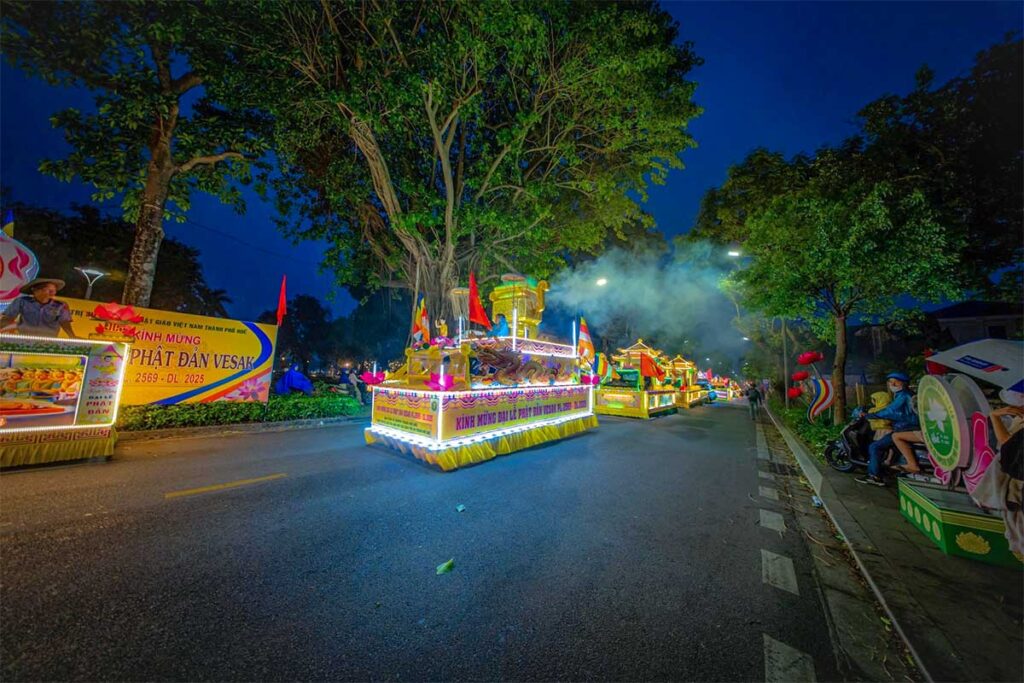
The “Cultural Colors” street festival is a good example of how Hue blends local and international influences. It brings together music, dance, and theatre styles from across Vietnam and from guest countries, creating a lively, multicultural street party. Even outside parade times, you’ll find smaller performances popping up in public squares and along main streets, so it’s worth keeping an eye on the program or simply wandering around in the evening.
3. Heritage and Cultural traditions
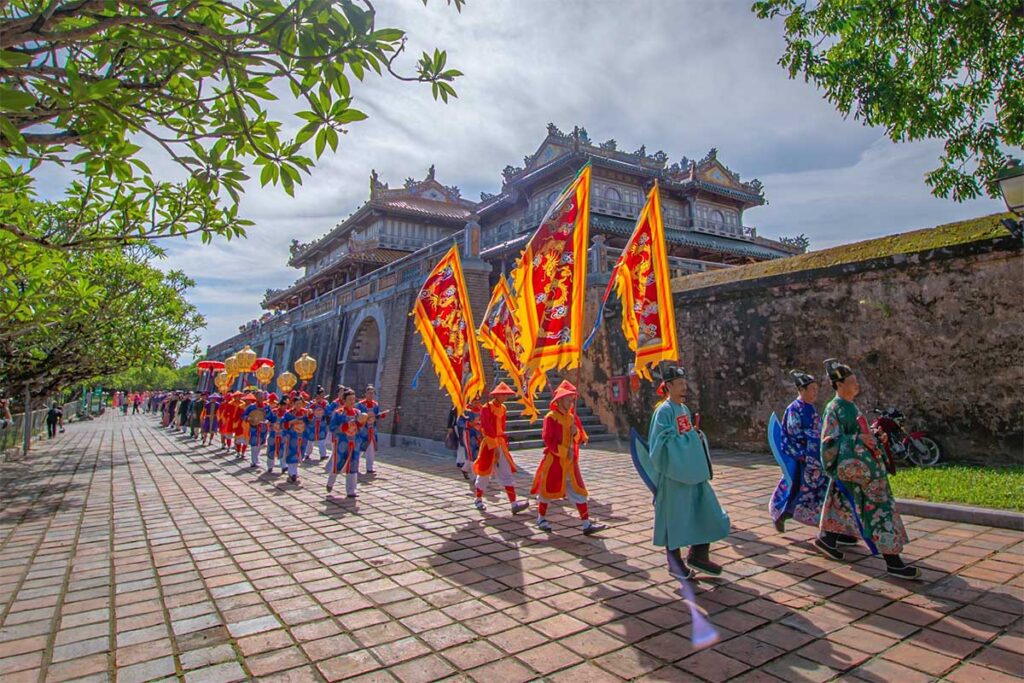
One of Hue Festival’s biggest strengths is how it uses the city’s history as a stage. You can watch reenactments of imperial ceremonies inside the Imperial City, complete with traditional costumes and formal rituals. Some events take place at royal temples or palaces that aren’t always accessible for regular performances, giving you a rare glimpse into Vietnam’s royal heritage.
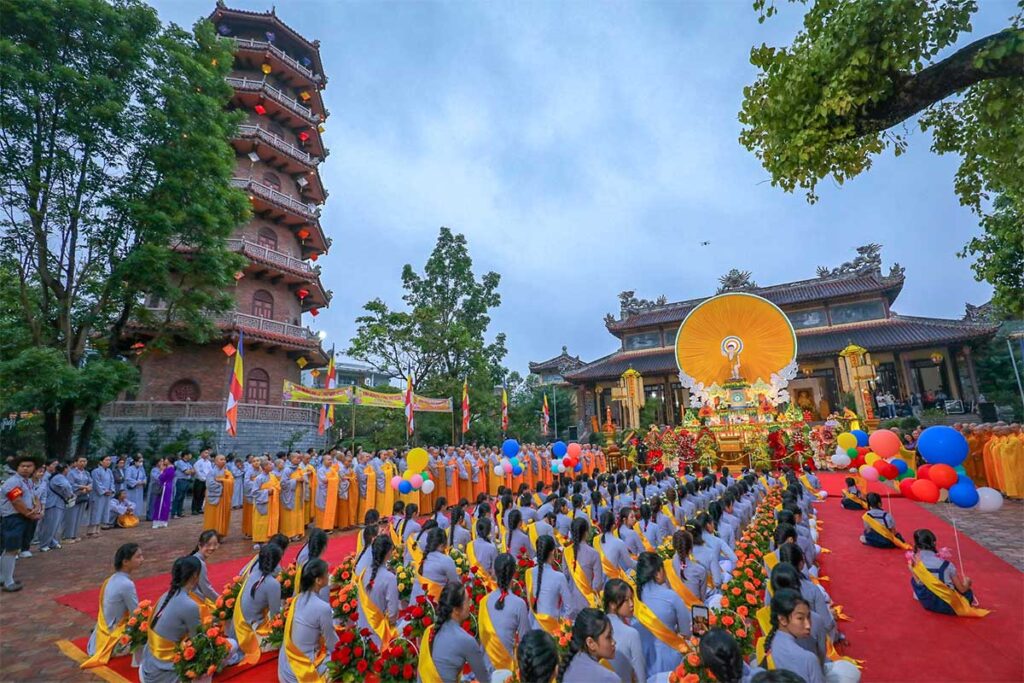
Religious celebrations, such as Buddhist Vesak or ancestor-honoring festivals, are also part of the calendar. While these are respectful cultural events rather than tourist shows, visitors are usually welcome to watch from the sidelines. In quieter corners, you may find demonstrations of calligraphy, traditional dress, paper crafts, or other heritage arts, often with opportunities to try them yourself.
4. Art and Exhibitions
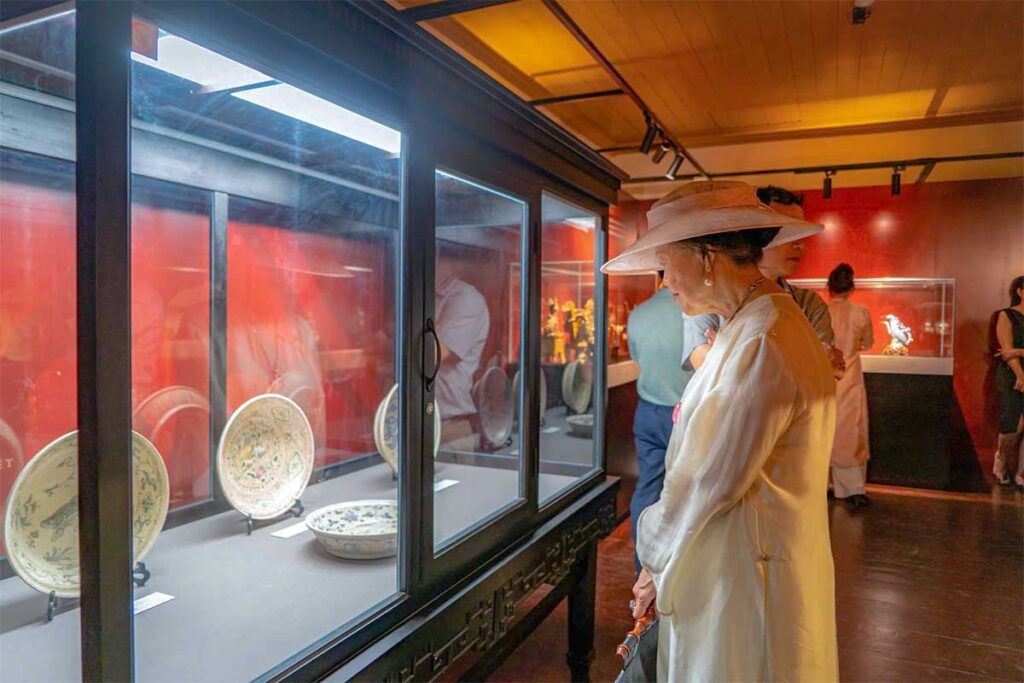
Hue Festival also has a strong visual arts presence. Exhibitions can be found in museums, heritage buildings, and pop-up gallery spaces. Many are inspired by Hue’s imperial past—wood carvings, lacquer paintings, and photography series that reimagine traditional motifs. Others lean into contemporary styles, with modern sculpture, abstract art, or experimental installations.
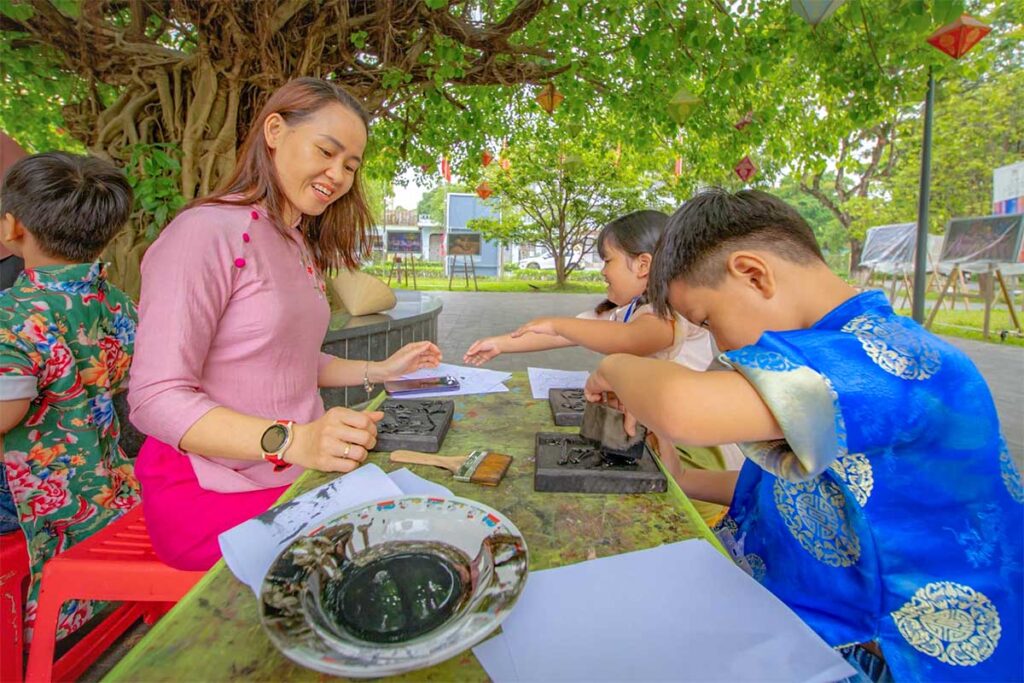
Some exhibitions also include interactive workshops where visitors can try techniques like wood carving, traditional painting, or paper crafts under the guidance of local artists—an engaging way to connect with Hue’s creative community.
Light festivals are another highlight, projecting intricate patterns and animations onto historical architecture. It’s a striking way to see familiar landmarks transformed after dark, and many events are free to wander through.
5. Culinary experiences
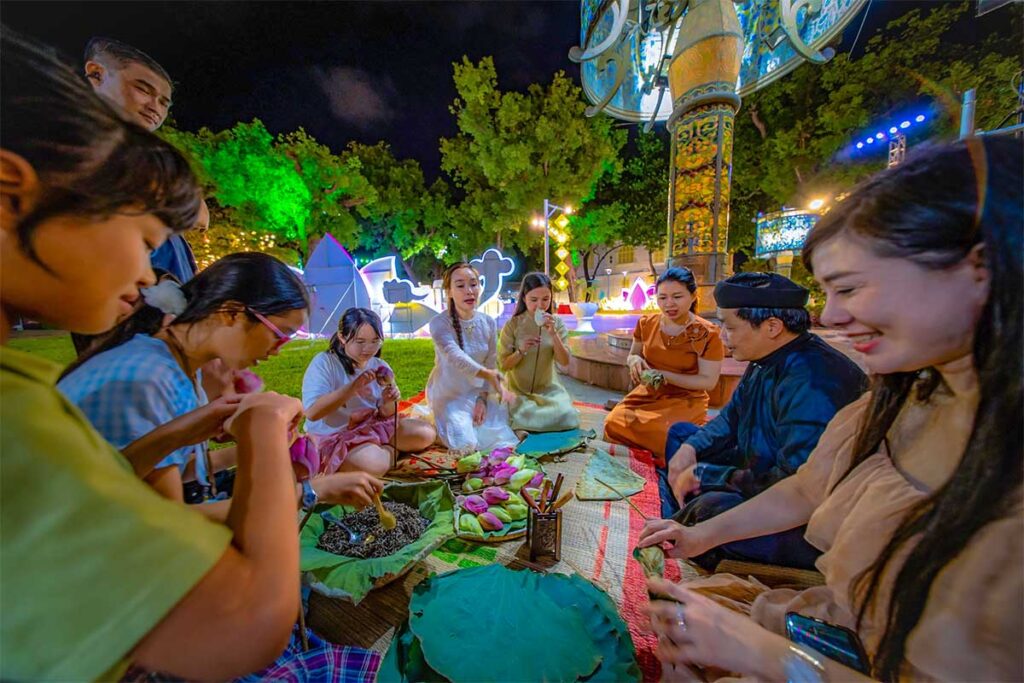
Food is an essential part of Hue’s identity, and the festival makes sure to show it off. Royal banquets recreate Nguyen Dynasty dining experiences, sometimes complete with period costumes and table settings. Food fairs and street food festivals give you the chance to taste everything from Hue’s famous bun bo (spicy beef noodle soup) to delicate vegetarian dishes.
Some events focus on specific themes—such as vegetarian cuisine, which has deep cultural roots in Hue, or beer festivals with live music and social atmosphere. If you’re here for the food, it’s worth checking daily schedules, as many culinary events happen for just one or two days.
6. Sports and Outdoor activities
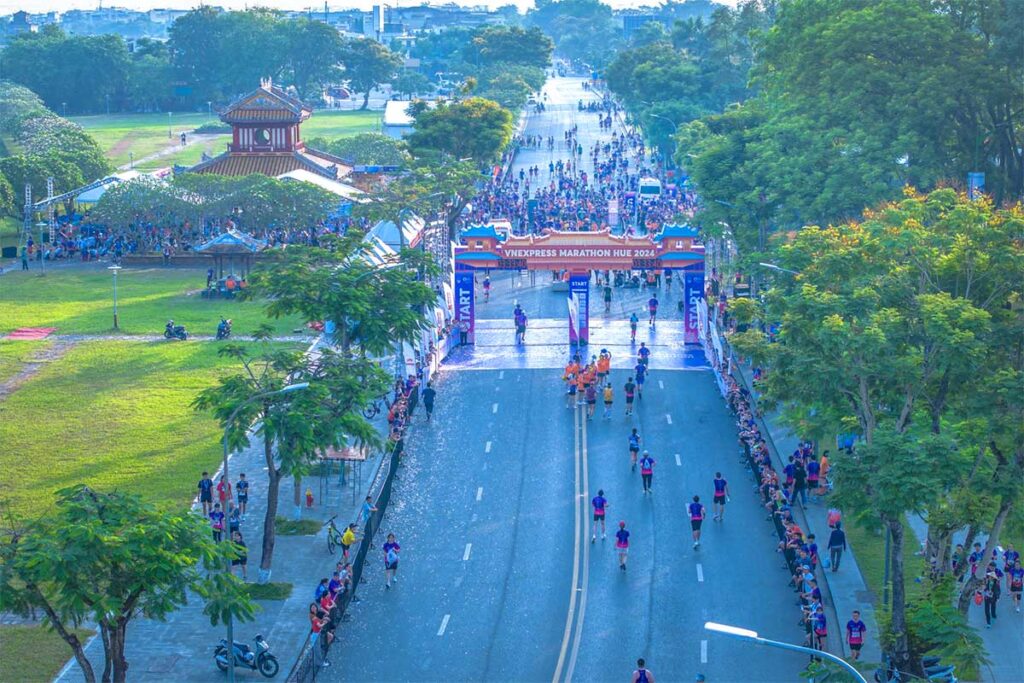
If you prefer something more active, Hue Festival includes outdoor events ranging from traditional to modern. The boat races on the Perfume River are a long-standing tradition, drawing big local crowds and lots of cheering. Marathons and community runs often take advantage of Hue’s scenic streets, passing by landmarks you might otherwise only see on foot or by bike.
In coastal areas near Hue, such as Thuan An Beach or Tam Giang Lagoon, festival-linked events sometimes include water sports, beach games, and fishing-related activities—giving visitors another reason to explore beyond the city centre.
7. River and Nighttime events
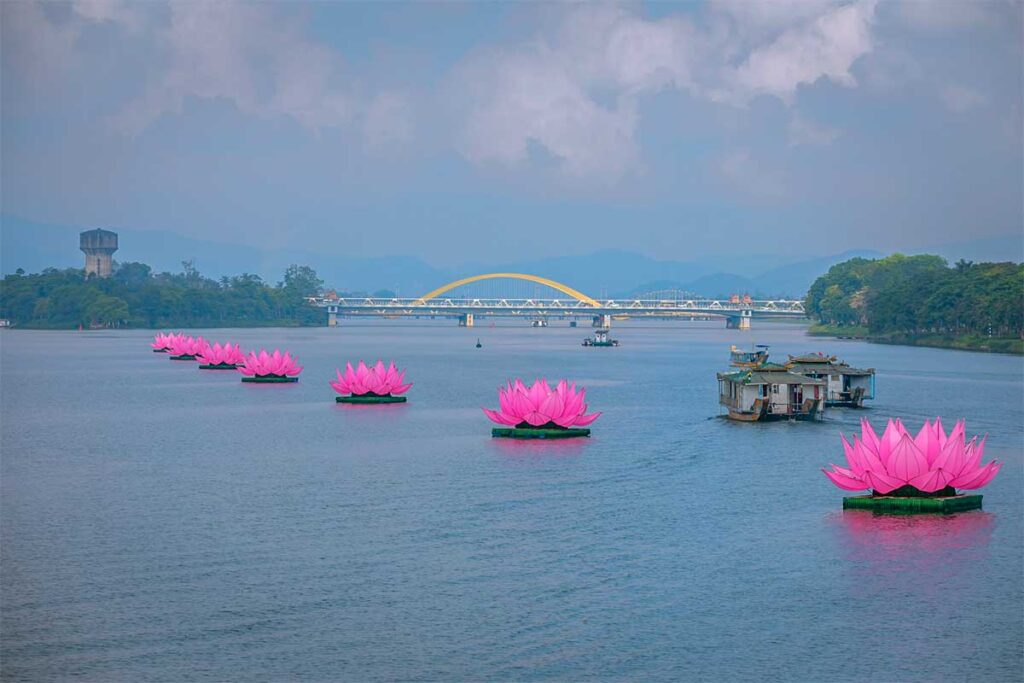
The Perfume River plays a central role in Hue Festival, especially at night. Floating lantern festivals are a favourite for both locals and visitors—you can release a small candle-lit lantern onto the water or simply watch hundreds drift past in the evening breeze.
Some events build floating stages on the river, creating a unique setting for music and dance performances with the Imperial City glowing in the background. Night markets, riverside art installations, and food stalls add to the atmosphere, making Hue feel like it’s buzzing long after dark.
What to expect as a visitor
Hue Festival offers a mix of big performances, casual cultural events, and smaller local activities—but what you experience really depends on your timing.
- Some weeks are packed with parades, concerts, and markets. Other times, there might be nothing at all happening.
- Most events are free or very affordable. However, larger shows—especially those inside the Imperial City—may require tickets (typically sold online or at the venue).
- Events take place across the city: at riverside parks, historic temples, walking streets, or inside the Imperial Citadel.
- If you’re lucky, you might stumble upon a street performance or evening concert without even planning it. But if you’re hoping to catch something big, it’s best to check the Hue Festival website or ask your hotel in advance.
- There’s usually limited English signage or explanation at smaller events—but even if you don’t fully understand what’s happening, the setting and energy often make it worth sticking around.
- Hue isn’t a year-round party town. Expect some quiet periods between festival weekends, especially in low season or between seasonal segments.
Tips for enjoying Hue Festival
- Check the official schedule
The Hue Festival website or local tourist information centers are your best sources for up-to-date event listings. - Plan ahead during peak periods
If your visit overlaps with major summer events or the opening week, expect larger crowds and limited availability—so it’s smart to plan and book early. - Reserve your accommodation in advance
Hotels can fill up quickly during big events. Booking ahead will give you better prices and locations. - Dress appropriately
Some events take place at temples or inside the Imperial City, so it’s best to bring modest, respectful clothing—especially for evening shows. - Go with the flow
Not everything will be clearly advertised, and English info may be limited. Sometimes the best experiences are the ones you just happen to walk into.
